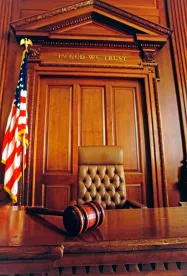In a unanimous 8-0 decision, the U.S. Supreme Court has vacated the political corruption convictions of former Virginia Governor Robert F. McDonnell for conspiracy to commit honest services fraud and Hobbs Act extortion and making false statements to federal officials. McDonnell v. United States, No. 15-474, 579 U.S. ___ (2016).
McDonnell and his wife, Maureen McDonnell, were convicted for accepting $175,000 in loans, gifts, and other benefits from Virginia businessman Jonnie Williams while McDonnell was Governor. Williams was CEO of a Virginia-based company that had developed a nutritional supplement made from a compound found in tobacco (anatabine). He wanted McDonnell to authorize Virginia’s public universities to conduct scientific research of anatabine and its potential medical benefits.
The government needed to prove that McDonnell committed (or agreed to commit) an “official act” in exchange for the loans and gifts received from Williams. The government alleged McDonnell committed “official acts” by arranging meetings for Williams with Virginia officials to discuss anatabine, hosting events for Star Scientific at the Governor’s Mansion, and contacting other state officials about studying anatabine. McDonnell maintained that setting up meetings, hosting events, or contacting officials about anatabine — without more — does not make an official act because they “are not decisions on matters pending before the government.”
The District Court instructed the jury using the government’s broad interpretation of “official act” and the jury convicted McDonnell on all counts. McDonnell was sentenced to two (2) years in prison, but appealed to the Fourth Circuit Court of Appeals challenging the jury instructions, which, he said, defined “official action” to allow “virtually all of a public servant’s activities” to be construed as official “no matter how minor or innocuous.” The Fourth Circuit affirmed McDonnell’s convictions. (Maureen McDonnell was convicted of similar charges and sentenced to one year in prison, although her appeal remains pending before the Fourth Circuit.)
Writing for a unanimous Court, Chief Justice John Roberts noted that the federal bribery statute definition of “official act,” 18 U. S. C. §201(a)(3), is “any decision or action on any question, matter, cause, suit, proceeding, or controversy, which may at any time be pending, or which may by law be brought before any public official, in such official’s official capacity, or in such official’s place of trust or profit.”
Significantly, the Court read the statute as “more bounded” than the District Court. Any decision or action on a “question” or “matter” before a public official, the Court found, was a formal exercise of governmental power akin to a “cause, suit, proceeding or controversy” and either was “pending” or by law be “brought before any public official” in his official capacity.
Equating McDonnell’s conduct with, for example, the President hosting championship teams at the White House or a cabinet secretary delivering a policy speech on a pending “question” or “matter,” United States v. Sun Diamond Growers of California, 526 U.S. 398 (1999), the Court found hosting events at the Governor’s mansion, meeting with public officials, or speaking with interested parties, without more, was simply not an “official act.” McDonnell’s conduct was not a “decision or action” within the meaning of the bribery statute despite the fact that the event, meeting, or speech related to a pending “question” or “matter” involving public financing of anatabine.
Something more is required, said the Court. The bribery statute requires the public official make a decision or take some action on the question or matter before such conduct becomes an “official act.” Even to agree to act on a “question” or “matter,” said the Court, would constitute an “official act.” Any other interpretation of the statute, said the Court, would make this critical requirement of the statute meaningless.
Finding the trial court’s jury instruction defining “official act” was “significantly over-inclusive,” lacked important qualifications, and failed to comport with the Court’s statutory interpretation, the jury may have convicted McDonnell for conduct that was not unlawful.




 />i
/>i

